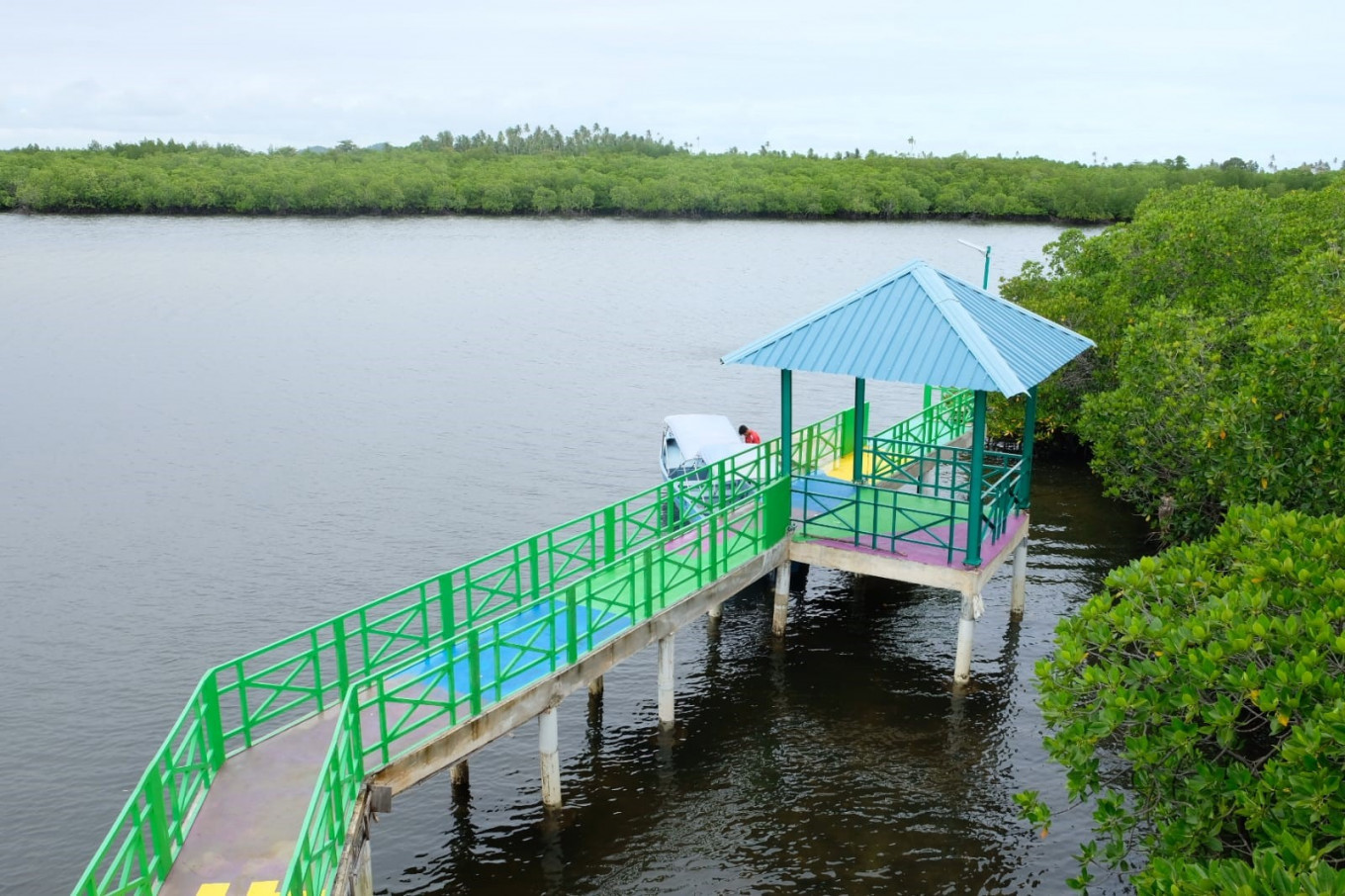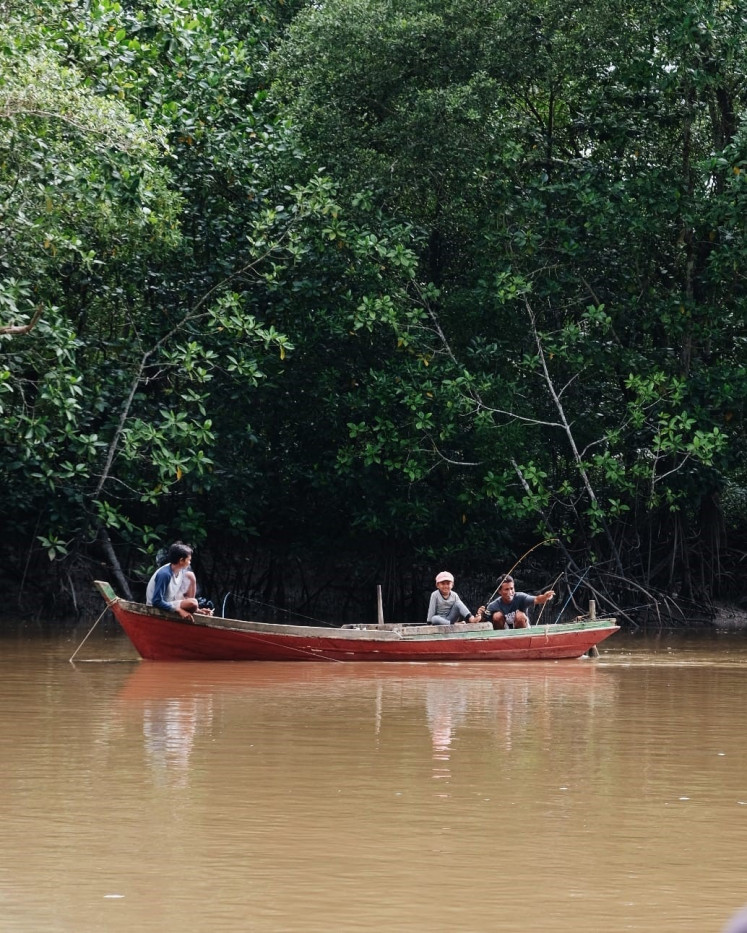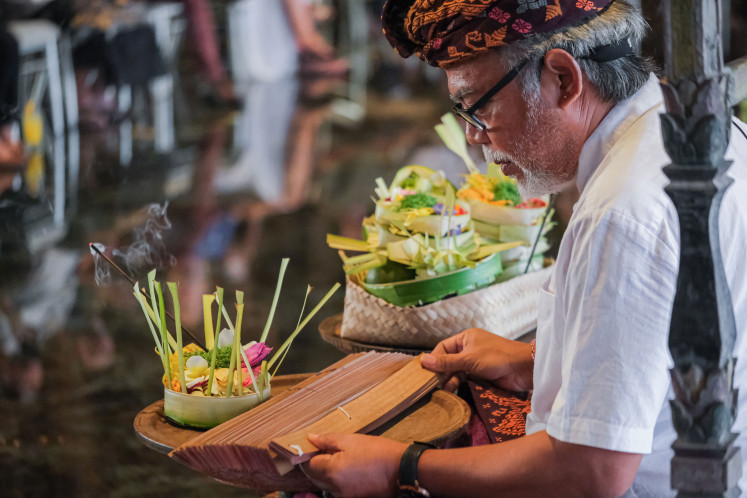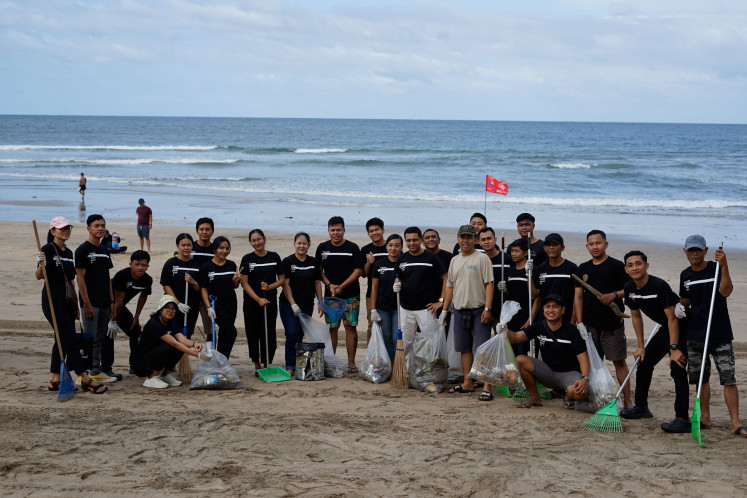Blue Carbon Ecosystem Governance in Indonesia: Threats & Opportunities
Change Size

W
ith the worsening impact of climate change due to human activity, as highlighted in the latest findings of the IPCC Sixth Assessment Report (2021), coastal areas are estimated to be one of the most impacted areas by climate change.
Blue carbon ecosystems (BCE) have a crucial role in mitigating and adapting to climate change. Consisting of mangroves and seagrass, BCE has the ability to sequester and store carbon up to six times higher than terrestrial forests (McIeod et al., 2011). BCE can also improve the socioeconomic conditions of communities, especially coastal communities, and functions as natural buffers to protect against climate-related coastal risks (OECD, 2021).
Based on the 2021 National Mangrove Map, Indonesia has 3,364,076 hectares of mangroves, making it the country with the largest area of mangroves in the world. In addition, Indonesia has 16 species of seagrass, or 22 percent of all seagrass species in the world (Indonesian Institute of Sciences, 2020). Currently, the validated seagrass area in Indonesia spans 293,464 ha, which is estimated to cover just 16-35 percent of potentially existing seagrass areas.
Even though Indonesia is very rich in BCE, the level of damage and degradation is alarming and the ecosystem has been facing various threats to its health (Murdiyarso et al., 2018). Based on IOJI’s research, BCE management in Indonesia is still focused on mangrove ecosystems with only a few policies related to seagrass protection.
President Joko “Jokowi” Widodo, on the first day of COP26 in Glasgow in 2021, stated Indonesia's commitment to rehabilitate 600,000 ha of mangrove forests by 2024, the largest mangrove rehabilitation target in the world. This commitment is in line with Presidential Regulation (Perpres) No. 120/2020 on the Peat and Mangrove Restoration Agency. Prior to COP26, the President also issued Perpres No. 98/2021 on the Economic Value of Carbon for Achieving Nationally Determined Contribution Targets and Control of Greenhouse Gas Emissions in National Development. This Perpres regulates the implementting mechanisms for the economic valuation of carbon, including the ocean sector (blue carbon).
Strengthening Indonesia’s BCE data
The problem with BCE data in Indonesia is closely related to the accuracy and inadequacy of technological, financial and human resources to manage that data. For example, Indonesia’s current data on seagrass do not represent the existing area. This absence of data creates uncertainty over seagrass ecosystem potentials. Efforts to improve the data on the potentials and existence of Indonesia’s mangrove forests were initiated with the launch of the National Mangrove Map in November 2021.
Spatial Planning not effective in protecting BCE
Law No. 26/2007 on Spatial Planning and Law No. 27/2007 in conjunction with Law No. 1/2014 on Management of Coastal Areas and Small Islands regulate supervision and law enforcement related to spatial planning violations. However, BCE still face the threat of anthropogenic destruction, such as land use conversion, damage from industrial activities and community over-exploitation of mangroves for their survival. IOJI has discovered that these conditions result, in part, from weak surveillance and enforcement of spatial regulations.
The momentum for integrating land and ocean spatial plans as mandated by Law No. 11/2020 on Job Creation (Article 7A) must be managed carefully. Integrating these spatial plans will be beneficial for protecting BCE if the following two important requirements are met: 1) the availability of environmental inventory data, which provide information on potential and available natural resources, and of the Strategic Environmental Assessment, which provides data on environmental carrying capacity of (articles 6 and 16 Law No. 32/2009). This data will be a benchmark for decision-making, whether BCE can be categorized as critical natural capital (CNC) that is treated as irreplaceable and not substitutable with human-made capital; and 2) ensure that the integration process is done transparently and accountably, and with public participation.
Ambiguous authority in mangrove management

Currently, the authority for managing BCE rests with the Environment and Forestry Ministry and the Maritime Affairs and Fisheries Ministry. Based on IOJI’s research, this is because mangroves are included in the definition for “forest” according to the 1999 Forestry Law, and are also included in marine and coastal resources as regulated in the 2007 Law on Management of Coastal Areas and its 2014 amendment 2014.
This duplication of authority has resulted in uncertainty and ineffectiveness in BCE management, which poses a risk to BCE protection, and needs to be resolved by amending the above laws or by regulating it with new laws, such as a law on climate change or on protection of BCE.
Guaranteeing community ownership, equitable benefits
IOJI has strong opinion that the protection of BCE can be encouraged through their use and management that involves local communities. Local communities can use and manage BCE through several activities, such as community-based ecotourism, silvofishery and selling seeds and mangrove products, as well as mangrove planting and maintenance.
Community management and use of BCE, especially mangroves, will run optimally only if there is strong legal protection for BCE and community land ownership policies on protecting BCE. The problem of secure and clear community ownership is closely related to certainty over their right to live on and use their land, or tenurial security, which can hinder the effectiveness of community-based BCE protection. Meanwhile, strong legal protection is needed for communities that use BCE from the potential threats of land and ocean grabbing.
A social forestry scheme offers potential legal protection for communities that manage mangroves. This type of scheme can also improve community welfare and environmental balance while maintaining a community’s sociocultural dynamics. In various regions in Indonesia, social forestry schemes have effective in protecting mangroves while reducing the ecological and economical impacts on the local community (Satria and Hermianto, 2020).
The government’s limited capacity in BCE protection and the present threats to BCE health throughout the country, make community involvement very crucial to protecting BCE. Economic incentives need to be offered for people wgo actively maintain BCE, such as by purchasing seeds, planting seedlings and caring for mangroves, until BCE can function to sequester and store carbon.
Regarding the distribution of benefits from enhanced BCE services, Presidential Decree No. 98/2021 on the Economic Value of Carbon stipulates that the economic value of carbon must benefit not only government and businesses, but also communities.
Momentum should also be developed through Indonesia’s G20 presidency. If BCE are intended to be a major part of Indonesia’s contribution to global climate mitigation, as stated in President Jokowi’s COP 26 speech, then the government should take serious steps in protecting BCE as critical natural capital that must be protected and cannot be substituted by human-made capital.
IOJI recommends that these strategic steps should include:
- Improve and integrate BCE database;
- Protect and expand the existing mangrove area to be classified as no-take zones in integrated spatial plans;
- Address ambiguity of authority in BCE management;
- Strengthen community-based BCE management with the full support of local, provincial and national government; and
- Strengthen surveillance and enforcement of any activities that degrade BCE.









